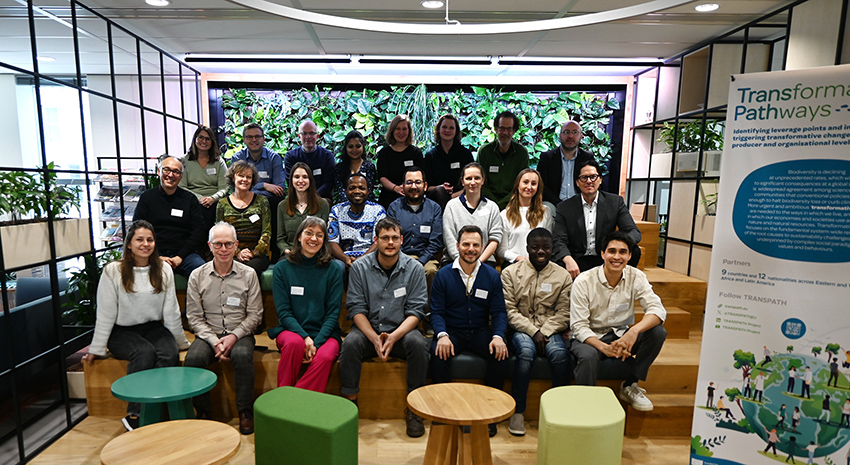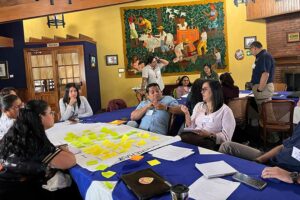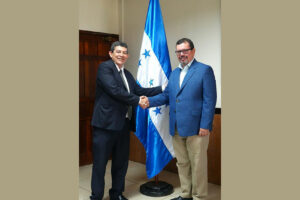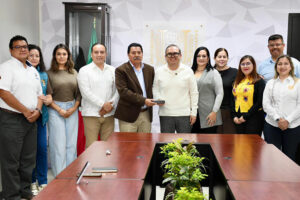TRANSPATH Seeks to Create Sustainable Transformative Paths and Advances by Celebrating Its Second Annual Meeting

- The CATIE participates from the Environmental Economics and Sustainable Agribusiness Unit (UEAAS/EfD) in the TRANSPATH project, which explores how to achieve a sustainable future by identifying ways to change our consumption, production, and relationship with nature
Creating transformative paths with the potential to accelerate changes in unsustainable patterns of extraction, production, consumption, and trade towards a just and inclusive transition that respects the biophysical boundaries of our planet is the goal of the TRANSPATH project. Implemented since November 2022, it celebrated its second annual meeting on March 6 and 7, in The Hague, Netherlands.
Representing the UEAAS/EfD, of the Tropical Agricultural Research and Higher Education Center (CATIE), researcher Pablo Evia attended the meeting. He mentioned that about 25 people from the Czech Republic, Spain, the Netherlands, the United Kingdom, Switzerland, Ghana, and Costa Rica attended the meeting, as these are the countries where the consortium's institutions are based.
“This second meeting has been an invaluable opportunity for researchers to share crucial advances on the interdependence between biodiversity in global south countries like Ghana and Costa Rica, and its impact on the European financial sector,” shared Evia.
Regarding the TRANSPATH project, Evia mentioned that CATIE plays a fundamental role in its coordination, alongside Wageningen University, Netherlands, also collaborating in the project's monitoring and leading the synthesis from science to policy, which aims to translate scientific results into public policy recommendations.
“This synthesis is a document aimed at decision-makers and civil society to promote the results and recommendations emanating from TRANSPATH,” complemented the UEAAS/EfD, researcher at CATIE.
A Transformative Research Project
Is it possible to conceive of an economy that not only does not harm biodiversity but actually improves it? This is one of the research questions posed by the TRANSPATH project, so the involved researchers describe different actions towards transformative change, which is termed as “transformative paths”.
Regarding the financial market, TRANSPATH proposes to conduct case studies focusing on two aspects: the impact of foreign trade policy at the European Union level on biodiversity, and, on the other hand, the role that the financial sector can play in contributing to positive value chains in specific products, like coffee and cocoa.
“For example, coffee and cocoa depend on pollinators and, therefore, are susceptible to the negative effects of deforestation and the decrease in biodiversity,” explained Evia. He added that much of the cocoa ends up in Europe, where companies from the Netherlands and Belgium play a significant role in its importation.
Consequently, if the decrease in biodiversity brings complications for these large importing companies, a potential instability in the international financial system would be generated.
In this regard, Evia added that “the conservation of biodiversity in countries like Ghana and Costa Rica emerges as a relevant aspect for the stability of the financial sector in Europe.”
Strengthening Cooperation with Wageningen University
CATIE is part of the TRANSPATH project thanks to the alliances built in the past in the area of environmental economics, which have given confidence to key partner entities that are now part of this project. The alliance with Wageningen University has not only made it possible to develop this project successfully but also serves to seek additional opportunities in the fields of research and education.
More information:
Pablo Evia
Researcher
Environmental Economics and Sustainable Agribusiness Unit (UEAAS/EfD)
CATIE
Pablo.evia@catie.ac.cr
Written by:
Marianela Argüello L.
Communication and Knowledge Management Officer
Environmental Economics and Sustainable Agribusiness Unit (UEAAS/EfD)
CATIE
marguello@catie.ac.cr



